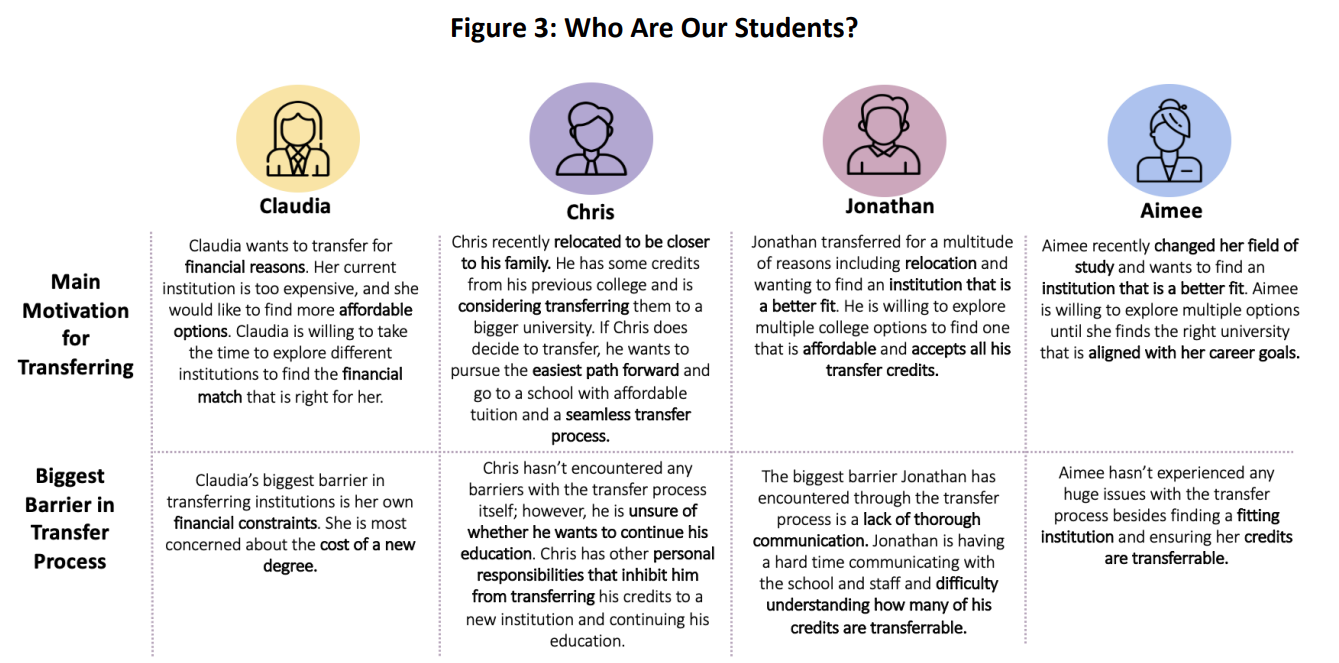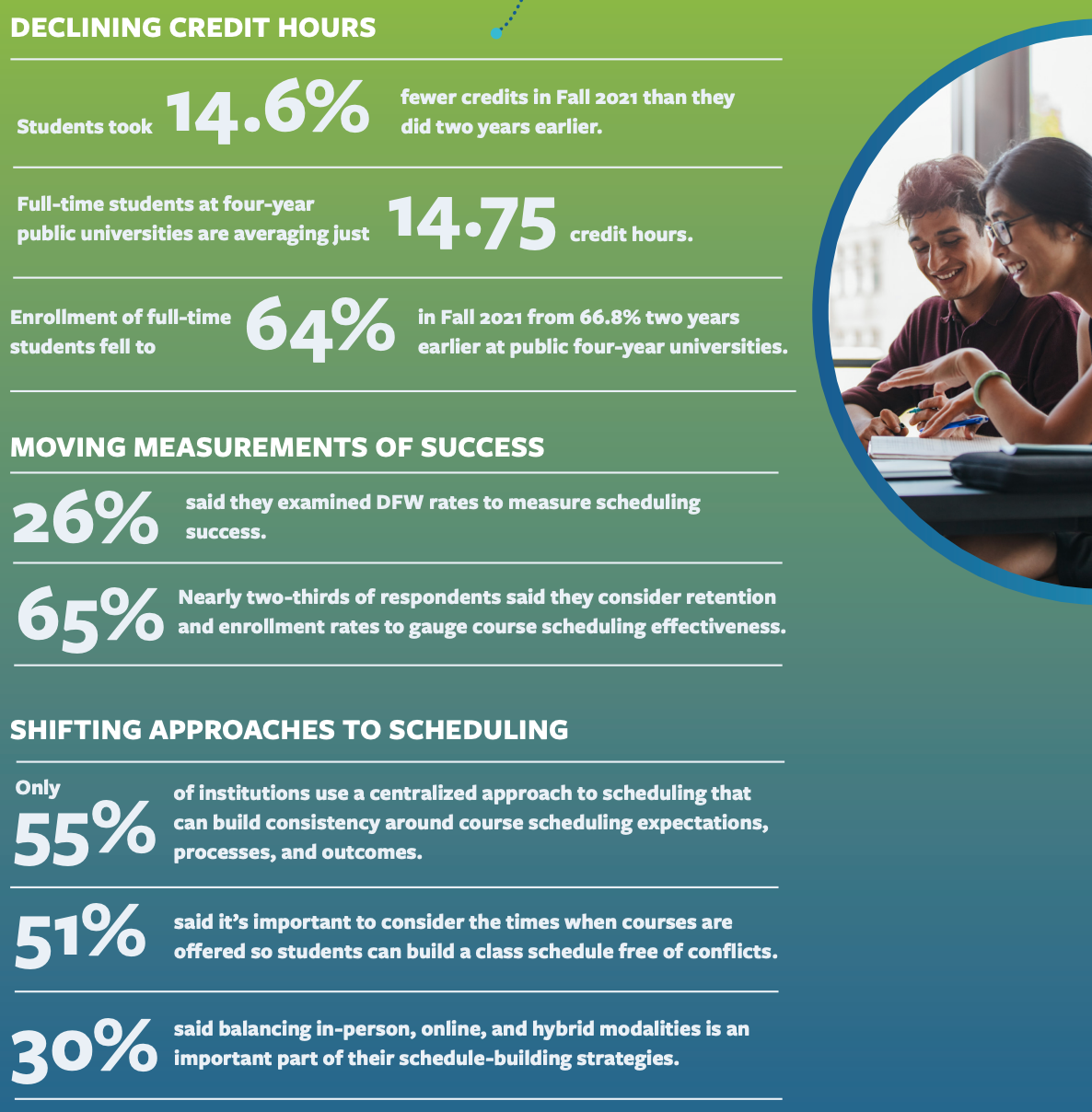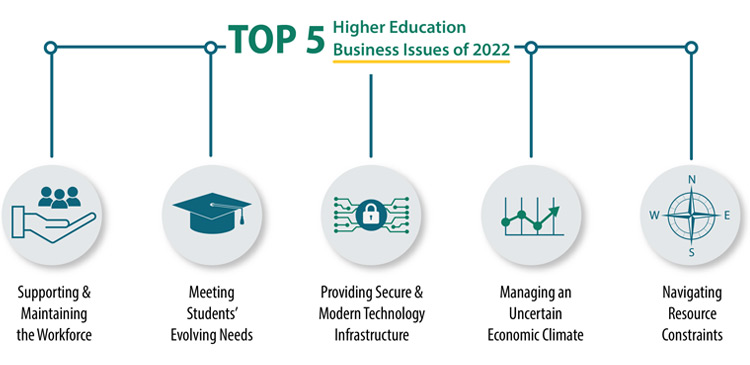Commentary
Stranded Credits Associated with an Institutional Debt: Working the Front End of the Problem
There has been a considerable amount of time, energy, and investment spent trying to understand the impact of debt-based stranded credits, including the volume and who is most likely to be left with debt-based stranded credits. Several solutions help
address this problem and have been proposed by several different organizations. However, it occurred to me recently, when speaking about the issue at the ASHE conference, these solutions appear primarily aimed at addressing the issue by not placing
a transcript hold for an unpaid debt or somehow forgiving it once incurred.
Should we spend equal time and energy on finding solutions to prevent the issue of unpaid debt from occurring, to begin with? Probably, but it is likely some solutions would be difficult to embrace. Solutions could involve tough discussions with students
about the number of classes they intend to take and the cost of those classes compared to their available fiscal resources and other fiscal demands. In addition, some students might need help understanding their ability to complete the number of classes
they intend to take versus their capacity to do so, as measured by other work/life constraints on their time. These engagements could potentially help reduce the number of times a student withdraws from courses after the refund deadline, thus ending
up in debt without any credit. Other solutions could be easier to embrace if they center around finding alternative funding sources that don't contribute to further indebtedness (i.e., not loans), but those opportunities seem hard to come by for many.
So until, or unless, college becomes universally affordable, it seems we face a conundrum.
Research does not appear to have addressed the percentage of unpaid debt associated with students who never completed a term and withdrew from all their courses after the refund deadline. In these instances, the student owes the money but has no earned
credits for the term tied to the debt. Research is also missing on whether a term-based debt has an association with classes for which the student did not earn a passing grade. This situation leaves students with debt but no stranded credits to speak
of for the term associated with the debt, and perhaps no stranded credits at all if the student enrolled for a single term.
AACRAO Research Update
Use of Degree-Audit and Education-Planning Solutions
The November 60-Second survey report highlights the
results of the survey. Key data points include the following.
Undergraduate-student-serving institutions
- 92% use a degree-audit solution
- 43% use an education-planning solution
- 7% use neither type of solution
- 46% fully trust the accuracy of the degree-audit assessment and use the assessment to award degrees and advise students with few, if any, manual corrections
- 15% enable prospect-not-yet-applicant use of the degree audit to help map a transfer pathway; 85% do not enable prospect-not-yet-applicant use of the degree audit
- 39% describe their use of data from the degree-audit and/or education-planning solution as "some localized, reactive analytics and reporting efforts."
- 36% describe their use of data from the degree-audit and/or education-planning solution as "none, or very little."
Graduate and/or Professional-student- serving institutions
- 80% use a degree-audit solution
- 30% use an education-planning solution
- 18% use neither type of solution
- 2% use only an education-planning solution
- 50% fully trust the accuracy of the degree-audit assessment and use the assessment to award degrees and advise students with few, if any, manual corrections
- 43% describe their use of data from the degree-audit and/or education-planning solution as "some localized, reactive analytics and reporting efforts."
- 48% describe their use of data from the degree audit and/or education-planning solution as "none, or very little."
Chief Admissions Officer Career Profile Survey
NACAC is partnering with AACRAO to expand the audience asked to participate in the Chief Admissions Officer Career profile survey. NACAC partnered with AACRAO in 2019 for the last version of this survey. We anticipate the completion of this report will
be by February 2023.
AACRAO and UPCEA to Partner In Spring 2023
In April 2023, AACRAO and UPCEA will partner on a benchmarking project to understand if and how an institution's registrar's office supports continuing education.
Current Higher Education Research and Related Topics
Students' Experiences in Transferring Credits - UPCEA and StraighterLine
The basis of this new report is from survey data of 974 students who met all the study qualifications. The UPCEA and Straigtherline research team created four personas from the data to "demonstrate how students' lived experiences
and perceptions around transferring influence the behaviors, motivations, and challenges of students." The figure below detailing these personas is directly from the report.

The results of this study closely mirror those of the AACRAO and ACE perceptions of student transfer work completed a couple of years ago.
Report Examines the Role of Course Scheduling on Student Success
A new report from Ad Astra examines the role of scheduling, particularly in a decrease in post-pandemic enrollment, and adds to our understanding of the practice. The Ad Astra report includes insight into the role of scheduling and gives advice for success. The infographic below captures many key points.
 (Source: Ad Astra)
(Source: Ad Astra)Report Examines Black Students at Community Colleges
One concern community colleges face is a decline in Black-student enrollment during the pandemic. In previous recessions, enrollment of Black students grew. A new report titled "The State of Black Students at Community Colleges" from The Joint Center for Political and Economic studies examines the metrics and outcomes of these students. Key findings include:
- From 2019 to 2021, enrollment fell by 18% for all Black students. Enrollment of Black men fell by 23.5%; Black women's enrollment fell by 15%.
- The typical Black community college graduate earns $20,000 less per year than their classmates.
- Black community college students experience the lowest graduation rates compared to their peers of other races and ethnicities (see the figure from the report included below).
Blog Post Examines Effects of Student-Loan-Payment Suspension
A new blog post from the Consumer Financial Protection Bureau examines
the effect of payment suspension and the potential loan forgiveness on borrowers. The bureau examined the credit records of individuals who would have to resume payments at the end of the suspension. There appears to be a rise in delinquency in those
loan borrowers on other credit, indicating they may have trouble making loan payments when the suspension lifts.
Common App Shows Significant Increase in College Applications for 2023
The Common Application has released information showing the total admissions at its 841 institutions for 2023. While early, at this point, they are showing a 26% increase over 2019–2020. The data also shows a 41% increase in applications over 2019-2020.
Key points include:
- Data shows a continuing trend of colleges with competitive admissions institutions having more early applicants than less-selective institutions; this may be partly because wealthy students tend to apply to colleges earlier than others.
- International applicants surged by almost 63% compared to 2019–2020.
- Applicants from underrepresented minority groups increased by 32% over 2019–20, while first-generation applicants increased by 43%.
Top Information Technology Issues for Higher Education
An infographic from EDUCAUSE shows the top ten IT issues in higher education for 2023.
Low Faculty Diversity Failing to Meet Student Needs
Research has shown faculty diversity can play an important role in learners' retention and persistence rates. A new study published by The Education Trust examines faculty diversity at 4-year public colleges and universities. Institutions received a score
from 0 to 100 that was converted to a grading scale of A through F. Key findings from the study include:
- Black and Latino faculty appear severely underrepresented at most public, 4-year colleges and universities.
- 57% of the institutions studied had F grades for Black faculty diversity, and 80% had F grades for Latino faculty diversity.
- Black and Latino faculty are disproportionately hired in nontenure-track roles.
New Policy Solutions to Improve Student Loan Policies and Practices
The National Association of Student Financial Aid Administrators (NASFAA) recently released policy briefs with key recommendations for student loan reform. These recommendations address three areas in the current repayment and servicing systems and are
linked below.
NACUBO Top Higher Education Business Issues
Through the use of survey data and focus groups, NACUBO identified the top five current issues in higher education.
 (Source: NACUBO)
(Source: NACUBO)